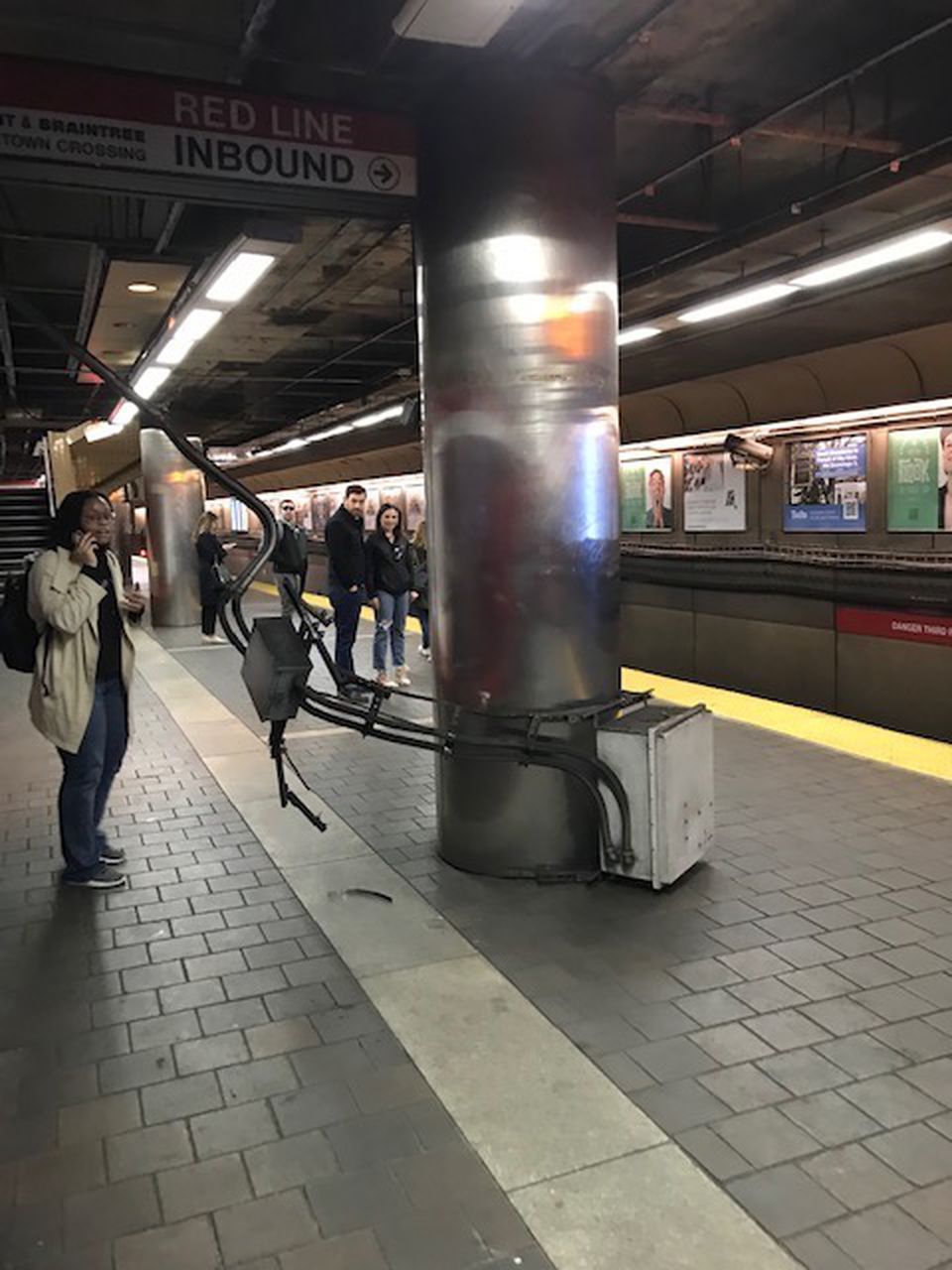NPR Scott Simon talks with author Dennis Lehane about his new novel, “Small Mercies.” It’s set in 1974 Boston, during the protests over court-mandated desegregation of public schools there.
SCOTT SIMON, HOST:
There’s a memory from his childhood that Dennis Lehane has never managed to shake. The bestselling novelist of “Mystic River,” “Gone, Baby, Gone” and other books recalls the summer of 1974. The city of Boston had erupted in protests over court-mandated busing to desegregate public schools. Driving home, his father took a wrong turn straight into a protest, and from the back seat, young Dennis Lehane saw what looked like life-sized dolls hanging from street lamps.
DENNIS LEHANE: People lit them on fire. And it was medieval, and it was a very strange thing to be trapped in when you were 9 years old.
SIMON: Dennis Lehane’s new novel, “Small Mercies,” is set during that summer of 1974. A Black student dies in a baffling subway accident. A white teenage girl goes missing. And a note to our listeners – our discussion will refer to the use of racial epithets. The novel follows the girl’s mother, Mary Pat Fennessy, on the hunt for her missing daughter. She is loving, hardworking, ferocious and a very specific protagonist for Dennis Lehane.
LEHANE: I’ve known a lot of Mary Pats, and I’d never seen them represented in literature before or on film. There is a certain type of woman – usually a woman who came out of the projects that I remember from being a kid, but also some who just lived in – you know, they lived in what we called three-deckers, women who came from poverty. And they were capable of going toe to toe with a man in a fistfight. That wasn’t saying they’d win, but they were capable of doing it, and they were reasonably fearless. So I got this image in my head of a woman getting back-talked by somebody – a man, a male – and beating the hell out of him in a bar. That’s kind of where I started.
SIMON: At one point, following up in one of her own leads, Mary Pat goes to Harvard Yard. She feels that students and hippies and, to use her terminology, snot noses are all staring at her. Why?
LEHANE: Because she’s poor. She doesn’t fit in this world. If you were to take the subway from – I think it was seven stops – from Broadway to Harvard on the red line in Boston, you know, that’s changing worlds. It’s changing cultures. It’s changing – it’s vast economic difference. It’s a route that I took when I was a kid. My mother insisted that I take piano lessons, which I did not want to do, but she made me take piano lessons with this nun over in Harvard Square. And so I would every Wednesday take the subway from Columbia Station, which is where I grew up in Dorchester, to Harvard Square, get out, and I don’t know if my mother intended it – I know my mother wanted to give me some type of culture – but what happened to me was I didn’t take to music but 20 bookstores within a square mile in Harvard Square when I was a kid, and that’s what I took to. If I got there early, I just wandered bookstores. And it opened up my eyes to the world. So when Mary Pat goes there, she says at one point she would feel more comfortable in another country – Ireland, perhaps – than she would feel in Harvard Square.
SIMON: Mary Pat doesn’t like the idea of school busing – Black kids from Roxbury bused to South Boston, white kids from South Boston to Roxbury. And at one point, she muses that the politicians who support it, like Teddy Kennedy, are, quote – profanity alert are, quote, “just another case of the rich [expletive] in their suburban castles in their all-white towns telling the poor people stuck in the city how things are going to go.” Pretty compelling argument, isn’t it, for both Blacks and whites?
LEHANE: Yes. And that was something I really wanted to examine, that desegregation of the Boston public schools had to happen. So on one hand, you have what needed to happen, which is desegregation. Then you had the method by which it happened, which was selective forced busing, which was not necessarily a good idea. And it was a case of the neighborhoods, the working-class neighborhoods, once again being told without a vote what they were going to do. And the people who constructed that social experiment could sit back without it affecting their lives one bit.
SIMON: Let me ask you about the language.
LEHANE: Of course.
SIMON: Yeah, a lot of it’s raw.
LEHANE: Yep.
SIMON: A lot of racial epithets.
LEHANE: Yes.
SIMON: Those are hard to use these days, aren’t they?
LEHANE: They should be. But they were very easy to use back then, at least where I grew up. There’s a photograph on the front of the book that was taken by Eugene Richards.
SIMON: This is a little boy looking up at it looks like mounted policemen, and it says Southie, God’s country on the back of his T-shirt.
LEHANE: Yes. And that was a Eugene Richards shot taken during a busing protest right out in front of South Boston High School. And to see it now and to see the graffiti that he captures and graffiti that was written all over the city – not just South Boston, but all over the city – including KKK, including the worst racial epithets you can think of and kill all the – fill in the blank. It’s shocking, and it’s sobering because you realize you can’t hide from those photographs.
SIMON: There’s a line that’s been ringing in my head of yours. Hate takes years to build, but hope can come sliding around the corner when you’re not even looking.
LEHANE: Oh, that’s my favorite line in the book. I’m glad. I’m glad that got you. The book is very much about the price of hate. Mary Pat will acknowledge that she has some racism, but she doesn’t understand the depths of it at all. She thinks, well, compared to all these other rabid racists around me, I’m not really that racist. And this becomes a journey for her to understand the terrible legacy of her racism, the way it was passed down to her, the way she passed it down to her children and how it’s all ultimately connected to everything that goes on in this book. And that’s the great tragedy. And at one point she comes to a realization that it’s something that was sold to her and that then she sold it to her own children.
And she has this heartbreaking line for me ’cause I didn’t even plan the line. It just popped out of me, which is, you know, they know. They always know. Even at 5, they know that what you’re telling them is a lie, but you wear them down. And then ultimately they embrace it. Nobody’s born racist – just not. Doesn’t happen. I mean, it sounds ridiculous to say that this late in the world’s becoming, if you will, but you don’t see two 4-year-old kids show up at a playground and not play with each other because one’s Black and one’s white. But by 8, that may be very likely. So I really wanted to look at it as this virus that is handed down generationally. And that’s – that became the impetus to write the book that became what in some ways was an expulsion for me, I think, of things I’ve been carrying around inside of me since I was 9.
SIMON: Is “Small Mercies” your last novel?
LEHANE: I don’t know. I really don’t know. So I’m out of contract for the first time in 25 years. I’ve been swept up into this wonderful world of premium television that I love. I’m a social being. It was never natural for me to sit in a room pecking away all the time alone. So this book, though, was written while I was actually running a television show, and it came out of me because it needed to come out of me, which is how you become a writer in the first place. So is it my last book? I don’t know. If it is, I’m OK with that. That’s great. It seems like a good mic drop to me. But if it’s not, it’ll be that another book needs to come out of me. Not because I owe the publisher a book, not because of my deadline, not because, you know, I’m worried about my agent’s bottom line – none of that. I just will need to tell a story. And if that happens, I would love to write another book.
SIMON: Dennis Lehane – his new novel, “Small Mercies.” Thank you so much for being with us.
LEHANE: Thank you, Scott.
Copyright © 2023 NPR. All rights reserved. Visit our website terms of use and permissions pages at www.npr.org for further information.
NPR transcripts are created on a rush deadline by an NPR contractor. This text may not be in its final form and may be updated or revised in the future. Accuracy and availability may vary. The authoritative record of NPR’s programming is the audio record.
https://buy.tinypass.com/checkout/template/cacheableShow?aid=9ENxKQ58pu&templateId=OTEY4VGMCJAW&offerId=fakeOfferId&experienceId=EXIXFAOJKYQS&iframeId=offer_eef1b5e1af5cdea2cc3c-0&displayMode=inline&pianoIdUrl=https%3A%2F%2Fid.tinypass.com%2Fid%2F&widget=template&url=https%3A%2F%2Fwww.npr.org
More Stories From NPR
Popular on NPR.org
NPR Editors’ Picks
READ & LISTEN
CONNECT
ABOUT NPR
GET INVOLVED
https://js.stripe.com/v3/m-outer-93afeeb17bc37e711759584dbfc50d47.html#url=https%3A%2F%2Fwww.npr.org%2F2023%2F04%2F22%2F1171450341%2Fdennis-lehane-on-his-new-novel-small-mercies&title=Dennis%20Lehane%20on%20his%20new%20novel%20’Small%20Mercies’%20%3A%20NPR&referrer=&muid=NA&sid=NA&version=6&preview=false

